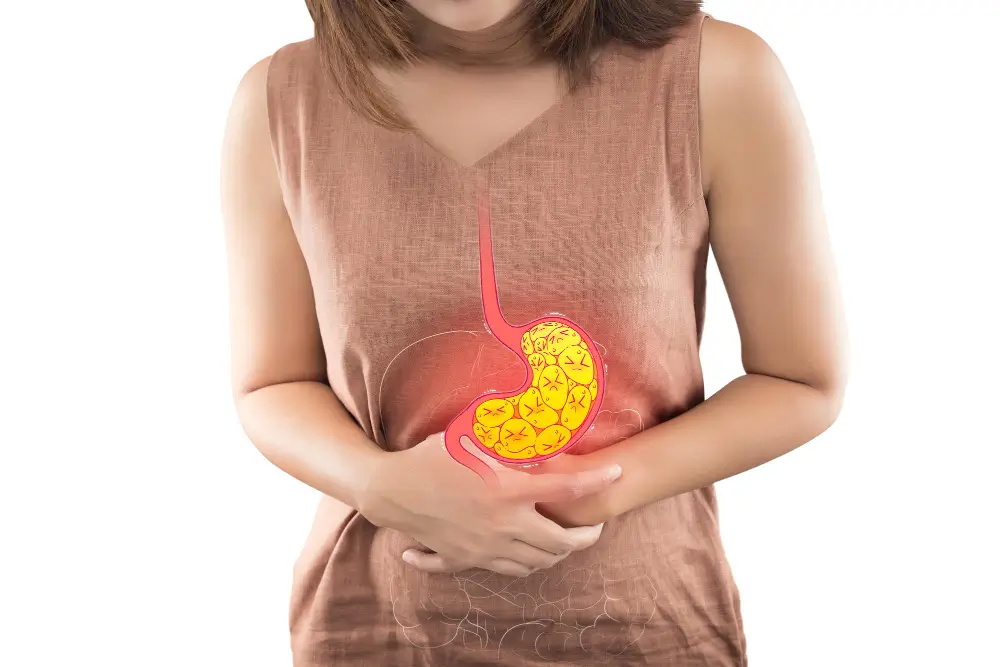A peptic ulcer is a painful sore that develops on the inner lining of the stomach, small intestine, and esophagus of a person. It might occur when the protective mucus layer that shields the stomach from the digestive acids gets damaged and allows the acid to erode the tissue. Peptic ulcers: Being uncomfortable can cause symptoms like burning stomach pain, bloating, and nausea. The good news, however, is that peptic ulcers are highly treatable with the right diagnosis and expert medical care. In this article, we will discuss in detail Peptic ulcer disease and how they are treated.

What are the causes of Peptic Ulcers?
The first step towards the treatment of a peptic ulcer is a proper diagnosis and determination regarding what is the cause behind it. Some of the most common causes of peptic ulcers are:
- Helicobacter pylori infection: It is a type of bacteria that irritates the lining of the stomach, causing a peptic ulcer in return.
- Long-term use of NSAIDs: The long-term use of non-steroidal anti-inflammatory drugs, such as Ibuprofen or Aspirin, can also cause this problem.
- Lifestyle Factors: Certain lifestyle choices like smoking, excessive use of alcohol, chronic levels of stress, and other factors may contribute to the problem.
Some of the tests that gastroenterology doctors near me can suggest in order to diagnose peptic ulcers are:
- Endoscopy: It involves a flexible tube, which is fitted with a camera and is inserted through the mouth of the patient to view the stomach and the duodenum directly. This might help to detect ulcers and rule out other conditions.
- H. Pylori tests: Tests of the breath, blood, or stool are used to check for the presence of this bacterium.
- Barium Swallow X-ray: During this test, patients are made to drink a barium solution, which outlines the digestive tract, making peptic ulcers visible on X-rays.
Once the doctors identify the cause of the peptic ulcers, the focus shifts to treatment aimed at healing the ulcers, relieving the symptoms, and preventing their recurrence.
Treatment of Peptic Ulcers
- Antibiotic Therapy
If the cause of the peptic ulcer is H. pylori bacteria, the doctor would prescribe a combination of antibiotics that are able to kill the bacteria. This usually includes two or more antibiotics taken for about 10 to 14 days.
- Acid-Reducing Medications
In order to help the ulcer in healing and prevent further damage, the doctor may prescribe medications that reduce stomach acid secretion, such as proton pump inhibitors, H2 receptor blockers, and antacids.
- Discontinuing NSAIDs
If the Elsa is caused by the prolonged use of NSAIDs, the gastro doctor near me may advise stopping and switching the medications. Alternative pain relievers such as acetaminophen may also be recommended for further irritation.
- Protecting the lining of the stomach
In certain cases, medication such as sacroiliac or major steroids is prescribed to cure and protect the lining of the stomach while it heals.
- Lifestyle and Dietary Changes
Dietary style changes might also be significantly important for recovery. These changes include smaller and more frequent meals, avoiding spicy and acidic foods, quitting smoking, limiting alcohol, and managing stress through yoga, meditation, and similar exercises.
If you are looking for the best gastroenterology doctors in Mohali or the best stomach specialist near me, Sohana Hospital might be the best option for you. Sohana Hospital Mohali is home to the World’s most advanced technology and North India’s most trusted and experienced gastroenterologists who provide the most comprehensive care for the patients in the region. Book your appointment today!
